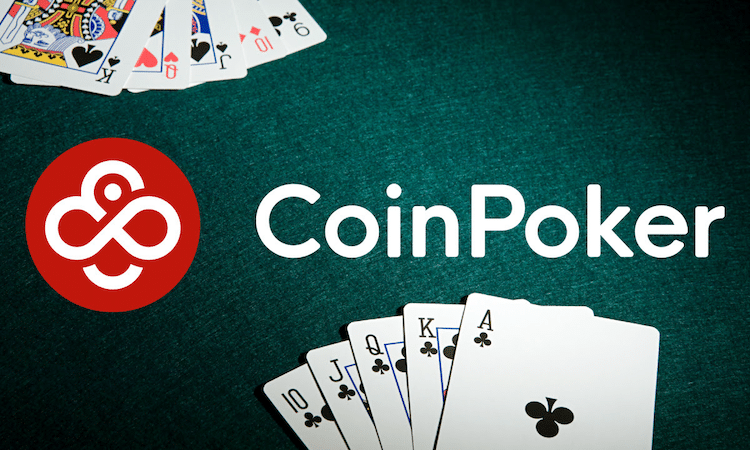Thailand, traditionally known for its strict gambling laws, is set to undergo a significant transformation in this sector. The country, where gambling is largely prohibited apart from state-sanctioned horse races and the official lottery, is considering a shift thanks to a newly proposed framework. This initiative, backed by Prime Minister Srettha Thavisin’s cabinet in April, could lead to the establishment of Integrated Casino Resorts (IRs) across the nation.
Ambitious Plan to Drive Tourism
The preliminary framework suggests issuing up to five licenses for IRs strategically placed within 100 kilometers of international airports. The project demands a hefty investment of at least 100 billion Thai baht (approximately $2.8 billion) for each license. This move aims to significantly boost the tourism sector, making Thailand more attractive to international travelers.
JP Morgan’s Revenue Projections
JP Morgan’s recent analysis estimates that Bangkok’s future IRs could generate an annual revenue between $2.5 billion and $3 billion. Under ideal conditions, if the government opts for issuing three licenses instead of one or two, this figure could reach as high as $5 billion annually.
According to the report, revenue contributions are expected from three main groups: Bangkok residents, regional Thai visitors from other parts of the country, and international tourists. The bank expects foreign tourists to drive more than half of this revenue, a common trend seen in many successful casino markets worldwide.
Foreign Tourists as the Key Demographic
Integrated Resorts have proven to be powerful tools for economic growth, stimulating job creation and development through their diverse offerings. The luxurious experiences offered by IRs often attract affluent international tourists who tend to spend more on amenities and entertainment, thereby boosting the local economy.
In the case of Thailand’s planned IRs, foreign tourists are likely to account for a significant portion of the revenue. The report suggests that 90% of total revenues will be driven by gross gaming revenue (GGR) from the casinos, despite occupying just about 5% of the total floor area of the resorts.
Thailand’s Gaming Market Size Could Reach $5 Billion by 2033
JP Morgan’s assessment extends to projecting the size of Thailand’s gaming market by 2033. The market could range anywhere from $1.5 billion to $5 billion annually. In comparison, Macau’s gaming industry generated $27 billion in 2023, while Singapore’s casinos brought in $7 billion, including $1.8 billion from non-gaming activities. Similarly, the Philippines and South Korea reported gaming revenues of $5 billion and $2 billion, respectively.
Recently, the Philippines announced plans to begin constructing a new integrated resort under Alliance Global Inc’s Travellers International Hotel Group in 2025, aiming to further boost its gaming industry. This growth in neighboring countries could serve as a benchmark for Thailand’s own ambitions.
Learning from Singapore’s Model
JP Morgan’s report drew comparisons between Bangkok and Singapore, noting similarities in population size and urban development. However, the report highlighted key differences, such as Thailand’s more diverse tourist attractions, which could result in a lower conversion rate for casino visitors compared to Singapore. Additionally, lower local income levels in Thailand could lead to reduced spending by local visitors, especially given the higher entrance fees that are proposed for Thai casinos.
Despite these hurdles, Singapore’s integration of casinos into its broader tourism strategy serves as a valuable model for Thailand. The successful incorporation of casinos into entertainment complexes has made Singapore a prime example of balancing economic benefits with social considerations.
Thailand’s Draft Casino Bill
Currently, Thailand’s draft casino bill proposes a unique structure for the new entertainment complexes. According to the draft, only 5% of the total floor area can be dedicated to gaming activities, while the remaining space would be used for hotels, conference centers, and other non-gaming facilities. Operators would be offered 30-year licenses, which could generate annual EBITDA (Earnings Before Interest, Taxes, Depreciation, and Amortization) of $400 million to $1.5 billion, with profit margins ranging from 25% to 35%.
Such developments could potentially increase Thailand’s GDP by up to 1%, creating a lucrative opportunity for global casino operators. Industry giants like Las Vegas Sands, MGM Resorts, Wynn Resorts, and Galaxy Entertainment Group have already shown interest in entering the Thai market.

Open Invitation for Global Investors
Thailand’s Deputy Finance Minister, Julapun Amornvivat, recently confirmed that the government intends to open its integrated resort market to all private investors. His comments came in response to calls by some MPs who suggested that the government should control the first casinos rather than involving international operators. Julapun stated that while the sector would be open to all, the government would need to establish clear regulations to oversee the business.
Additionally, he mentioned that global entertainment companies, such as Walt Disney and Universal Studios, could be invited to participate in Thailand’s evolving entertainment landscape if they adhere to transparency standards and necessary procedures once the bill is approved.
Taxation and Regulatory Challenges
One of the pending issues for Thailand’s casino sector is tax collection. Julapun noted that further discussion is required on how taxes will be managed and which governmental body would be responsible. It has been suggested that a separate agency might be needed to handle tax collection specifically for this sector. However, under Thailand’s State Fiscal and Financial Disciplines Act, tax collection currently falls under the jurisdiction of the Customs, Revenues, and Excise departments within the Finance Ministry.
We need to carefully evaluate the project to minimize any negative impacts on the economy and society.
Julapun emphasized that the impacts on society need to be addressed, pointing out that a balanced approach is necessary to ensure sustainable growth for the industry.
A Game-Changer for Thailand’s Tourism Sector?
With the potential to generate billions in revenue, Thailand’s proposed IRs could be a game-changer for the country’s tourism and entertainment sectors. The success of this venture, however, will depend on how well Thailand manages the integration of casinos into its economy, learns from regional examples like Singapore, and addresses the associated social and regulatory challenges.

CoinPoker: A Poker Platform Tailored for Crypto Enthusiasts
For those passionate about poker and curious to explore the intersection of digital currencies and online gaming, CoinPoker offers an innovative platform that stands out in a crowded field. Unlike traditional poker sites, CoinPoker embraces blockchain technology, delivering a secure, private, and decentralized experience for its users. While it caters primarily to poker and sports betting aficionados, what truly distinguishes CoinPoker is its focus on integrating cryptocurrencies. Let’s delve deeper into what sets CoinPoker apart and see if it’s a good fit for dedicated poker enthusiasts.
A Blockchain-Based Poker Revolution
Established in 2017, CoinPoker set out to reshape the online poker landscape by using blockchain as the backbone of its platform. Initially, it introduced free-to-play games, but quickly transitioned into real-money gaming in 2018, giving players the option to use various cryptocurrencies for placing their bets. The platform’s native token, CHP (Chip), plays a pivotal role, serving as a medium for rewards and enhancing player engagement.
In addition to CHP, CoinPoker supports well-known cryptocurrencies like Bitcoin (BTC), Ethereum (ETH), and Tether (USDT), all operating on the Ethereum blockchain. This blockchain integration ensures not only transparency and security but also a decentralized structure—features that are not commonly found in conventional poker platforms.
One standout feature of CoinPoker is its advanced Random Number Generator (RNG), which guarantees the fairness of every hand played. This technology prevents any form of manipulation, safeguarding the integrity of the platform. Furthermore, CoinPoker prioritizes user privacy by enabling players to participate in games without the need to disclose personal details, thanks to secure crypto-based transactions.
Backed by Poker Pros
CoinPoker’s standing in the poker community has been bolstered by endorsements from prominent poker figures. High-profile supporters include Mario Mosböck, a former Austrian footballer turned professional poker player, and Patrick Leonard, a renowned British poker pro. Their backing has not only increased CoinPoker’s visibility but also added credibility among serious poker enthusiasts.
Transparency is a key principle for CoinPoker, reflected in its operations. Licensed by Curaçao eGaming, the platform employs a Proof of Reserves (PoR) system to provide assurance to its users that their deposits are fully backed. At present, CoinPoker holds around $16 million in player deposits, with reserves nearing $16.75 million. This robust financial setup gives players confidence in the security of their funds and the platform’s ability to meet its financial commitments.
Lightning-Fast Crypto Transactions and Secure Play
One of the significant advantages CoinPoker offers is its use of cryptocurrencies for quick and seamless transactions. Unlike traditional poker sites that often have protracted withdrawal processes, CoinPoker’s blockchain-based infrastructure facilitates rapid deposits and withdrawals. Players can enjoy near-instant transfers, while the inherent privacy features of cryptocurrencies minimize transaction-related friction.
CoinPoker is also committed to promoting responsible gaming. It provides tools such as self-exclusion options for players who may need to step away, ensuring a balanced and safe gaming environment. In addition, its stringent anti-fraud mechanisms further secure the platform, creating a trustworthy space for all players.
Although the platform’s game variety might not match that of larger poker sites, it compensates with its focus on fairness, security, and smooth cryptocurrency integration. For players who prioritize privacy and a decentralized approach to online gaming, these elements make CoinPoker an appealing choice.
Is CoinPoker the Right Choice?
With its swift transaction speeds, backing from respected poker professionals, and commitment to a decentralized framework, CoinPoker offers a unique gaming experience for those who appreciate the blend of poker and digital currencies. If playing poker on a secure, transparent blockchain-based platform appeals to you, CoinPoker is certainly worth considering. Dive into the world of decentralized poker and discover what this cutting-edge platform has to offer.
Related News
- Thailand’s Casino Legalization Receives Widespread Public Support
- Mastermind Behind $14 Billion Crypto Pyramid Scheme Extradited to China from Thailand
- Thailand Introduces Exclusive Bitcoin ETF for Ultra Wealthy Investors
- Thailand Government Explores Casino Resorts in Bangkok
Lucky Block Casino - Decentralized Gambling Platform

- Bet With Crypto - BTC, ETH, USDT, LBLOCK and More
- Live Dealers - luckyblock.com
- Rated Best New Crypto Casino - No KYC
- Thousands of Slots, Blackjack, Roulette Games



